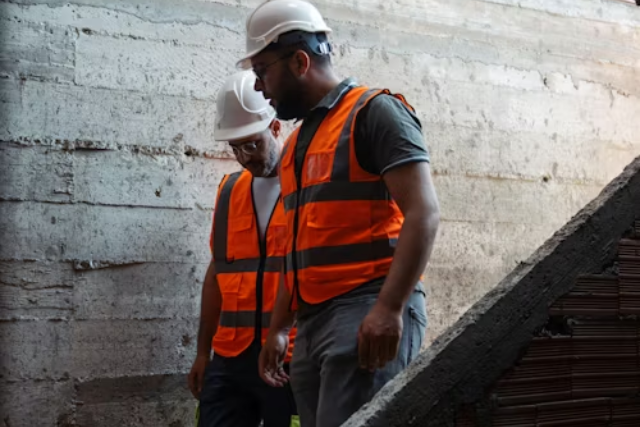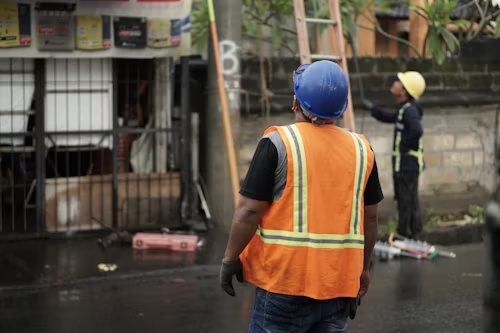
LOS ANGELES, July 18, 2025 — A new home frame sits half-finished in a Los Angeles neighborhood — not for lack of plans or materials, but for lack of the hands needed to do the work. For contractors like Jason Pietruszka, this is becoming the new normal across California as stepped-up immigration raids leave the state’s already strained construction workforce in short supply.

“We have probably three people on site, four people on site, and normally, we'd have about double, about eight to 10 people,” Pietruszka told CBS News. “They're hiding. People aren't willing to come to work.”
While Pietruszka says he only hires documented workers directly, he openly acknowledges what many in the industry know but rarely say on record: much of California’s skilled labor force, especially for certain trades, relies on undocumented workers who now fear showing up due to Immigration and Customs Enforcement (ICE) operations.
“If a company has five trucks going out and doing work every single day, and there's two guys per truck, and half their crew doesn't want to come, that's literally three jobs, or two jobs, that can't be performed,” he explained.
The shortage comes at a precarious time for California’s housing market and communities recovering from disaster. More than 12,000 homes destroyed by the Palisades and Eaton fires earlier this year urgently need to be rebuilt. Meanwhile, the state continues to fall short of its long-term housing production targets, which call for building millions of new homes by the 2030s to keep pace with population needs and affordability goals.
Industry experts say the math doesn’t add up without immigrant workers. A 2023 analysis by the National Association of Home Builders found that 41% of California’s construction labor force is foreign-born, compared to about 31% nationwide — a gap that makes the state particularly vulnerable to labor disruptions tied to immigration policy.

A UCLA Anderson Forecast report released in March underscored the risks: “Deportations will deplete the construction workforce statewide,” the forecast warned, adding that single-family and small multi-family projects would be hit hardest. “The loss of workers installing drywall, flooring, roofing and finishing will directly diminish the level of production,” the report concluded.
That drop in production is already playing out on job sites, Pietruszka says, with ripple effects reaching homeowners’ budgets. “When you find the people who are willing to do the job, they want probably double the hourly rate,” he said. “…That means the consumer is paying more.”
Beyond higher costs, contractors say the shrinking labor force could extend timelines for fire recovery and for affordable housing developments that rely on tight scheduling and competitive bids to pencil out. Builders also worry that rising wages without an expanded labor supply will push up overall home prices — worsening the very housing crisis policymakers say they want to solve.
Trade groups including the Associated General Contractors of America and California Building Industry Association have called for solutions that balance border security with workforce realities — including potential reforms for guest worker programs or pathways to legal status for longtime tradespeople.
Local leaders are also watching the impact on small businesses. Many family-run subcontracting firms — from drywall and framing to tile and roofing — rely heavily on crews that include both documented and undocumented workers. Fewer hands mean fewer projects completed, tighter competition for remaining labor, and a ripple effect through supply chains and local economies.
Meanwhile, many homeowners recovering from the devastating wildfires are stuck waiting. In Los Angeles County alone, thousands of insurance claims are still open as homeowners scramble to find contractors with the crews needed to rebuild to code.
As crews dwindle, some contractors say they’re turning away work entirely because they can’t guarantee they have the workers to deliver.
“It’s simple math,” Pietruszka said. “If you can’t find crews, you can’t build homes. And if you can’t build homes, prices stay high, people stay displaced, and the community loses.”
With immigration policy showing no sign of loosening soon, many in the industry worry this is only the beginning of deeper disruptions to one of the state’s most vital economic engines.
Originally reported by Carter Evans in CBS News.